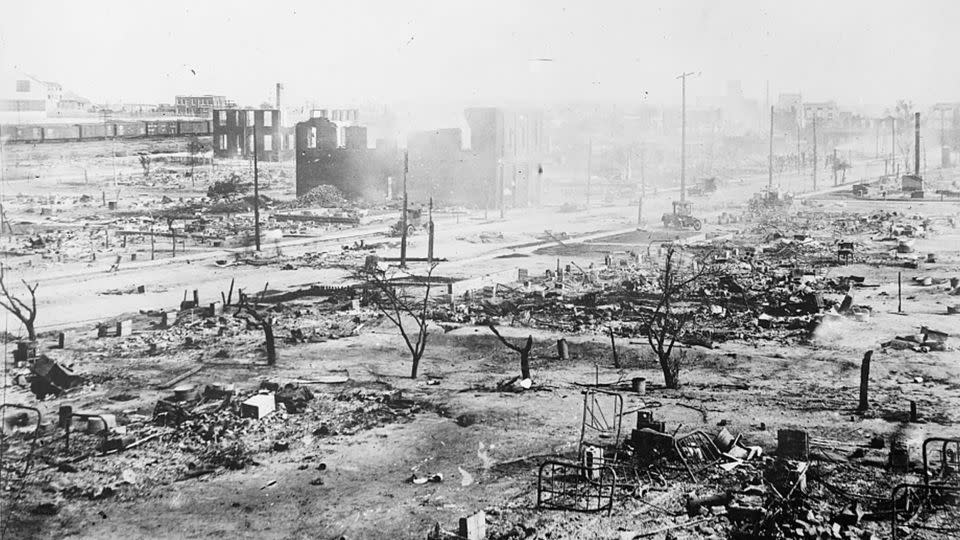Oklahoma supreme court to hear Tulsa Race Massacre appeal
The Oklahoma Supreme Court will consider an appeal challenging the dismissal of a lawsuit that sought reparations for the last three known survivors of the 1921 Tulsa Race Massacre, according to court documents.
A timeline for when the Oklahoma Supreme Court will hear the appeal is unknown, but the plaintiffs’ attorney told CNN both the legal team and his clients are “ecstatic” for the court’s decision, which they say is “extremely rare” in a civil case.
“If this truly is a nation of laws and a state based on the law, then my clients, the last known survivors of the massacre … should be able to go to court and have a court of law determine what occurred,” attorney Damario Solomon-Simmons told CNN.
A spokesperson for the city of Tulsa, Carson Colvin, told CNN: “The city does not comment on pending litigation.”
Earlier this month, the plaintiffs filed the appeal after a lower state court dismissed their lawsuit in July.
The state Supreme Court’s decision revives the lawsuit in which Lessie Benningfield Randle, 108, Viola Fletcher, 109, and her brother, Hughes Van Ellis, 102, sought compensation from the city of Tulsa for the hardships their families endured. The three lived in Tulsa’s Greenwood neighborhood when it was burned to the ground during the massacre.

In their original lawsuit, the plaintiffs sought relief from the damage inflicted during the massacre, which they called a “public nuisance.” They also sought to “recover for unjust enrichment” others have gained from the “exploitation of the massacre,” court documents said.
Judge Caroline Wall dismissed the case with prejudice after the city argued it should not be liable for the damages. The city argued that “simply being connected to a historical event does not provide a person with unlimited rights to seek compensation from any project in any way related to that historical event.”
In their appeal, the plaintiffs asked the Oklahoma Supreme Court to allow them the “opportunity – before they die and there are no other survivors of the Massacre – take the stand, take an oath, and tell an Oklahoma court what has happened to them, their families and their community.”
For more CNN news and newsletters create an account at CNN.com

